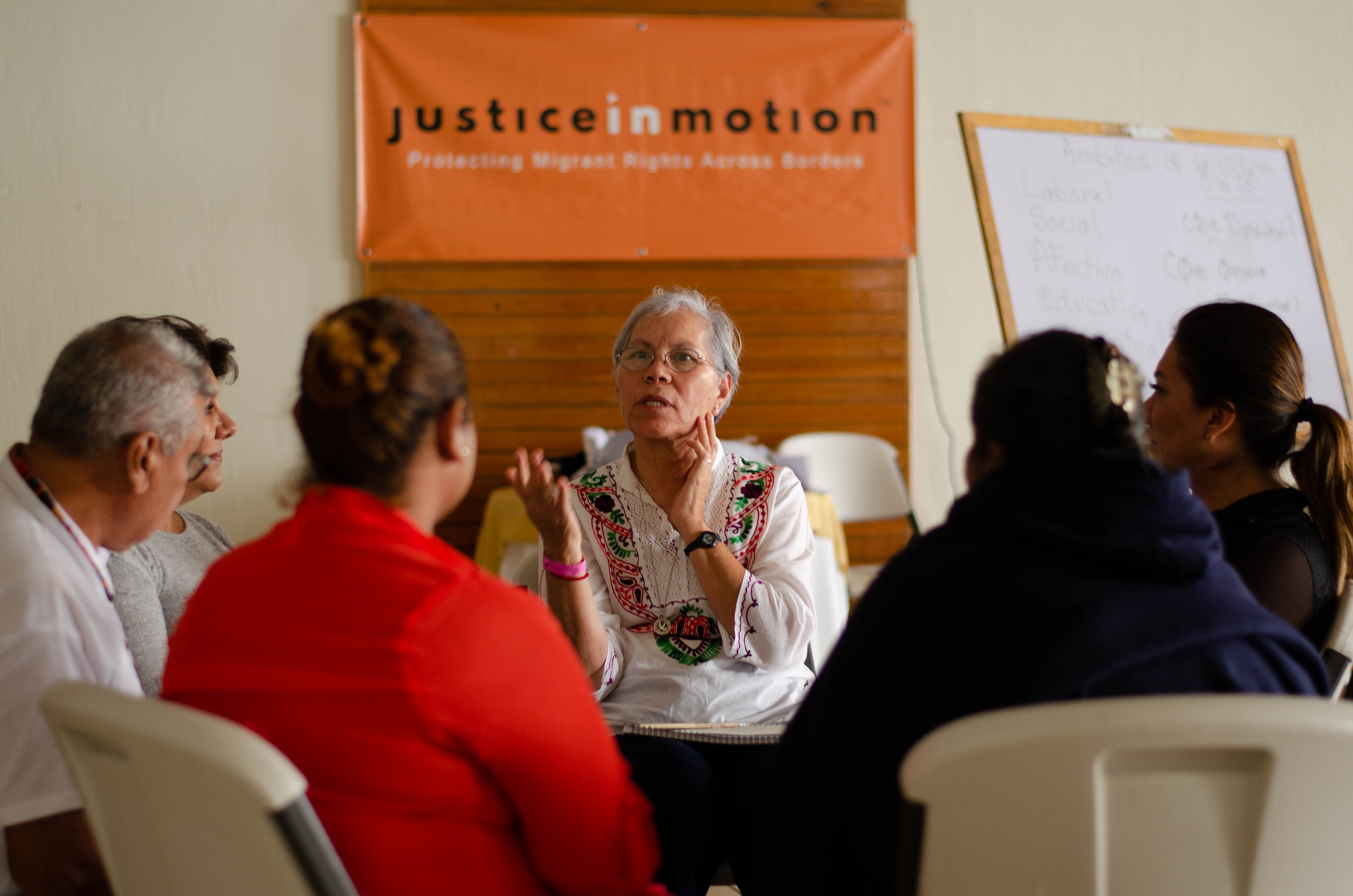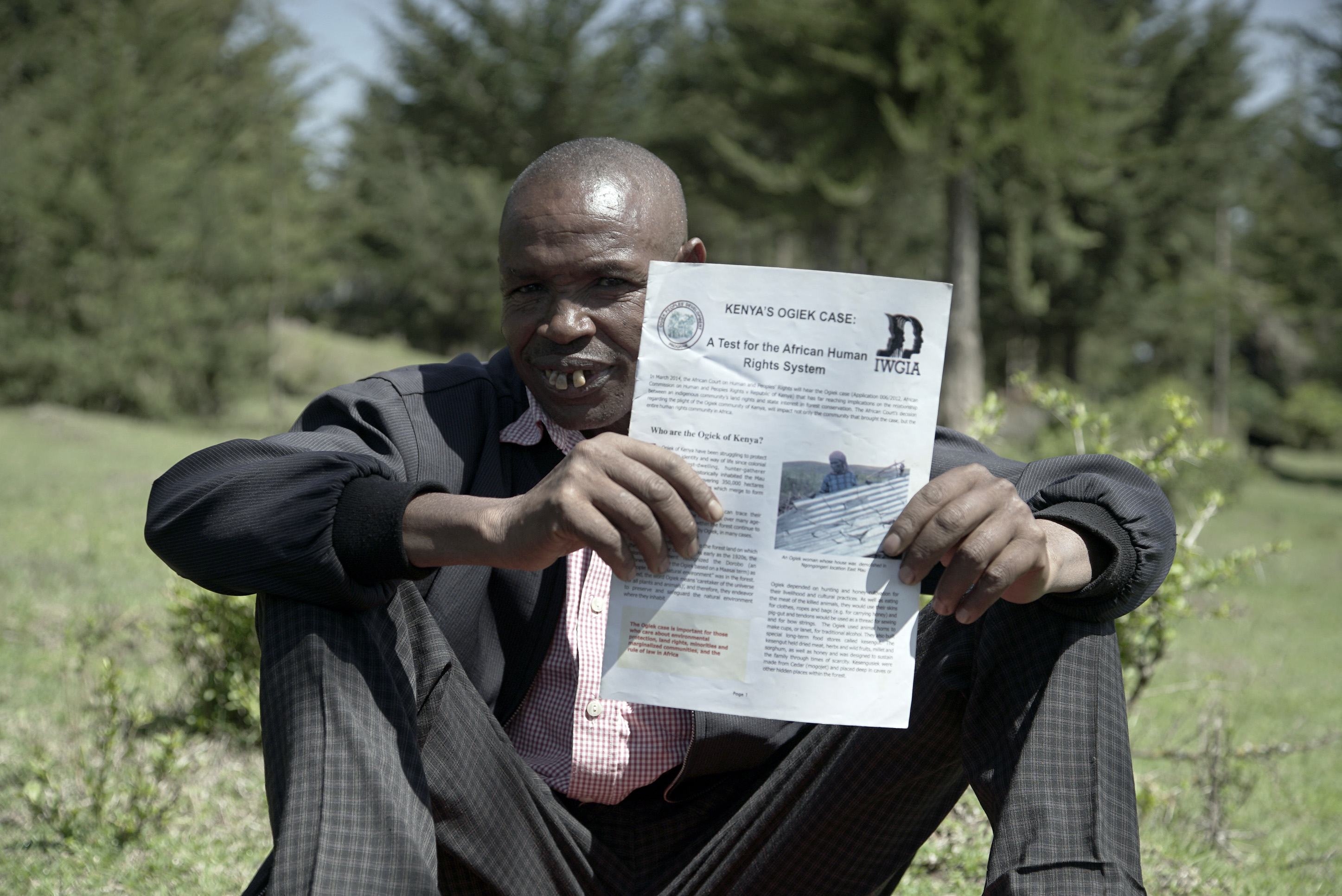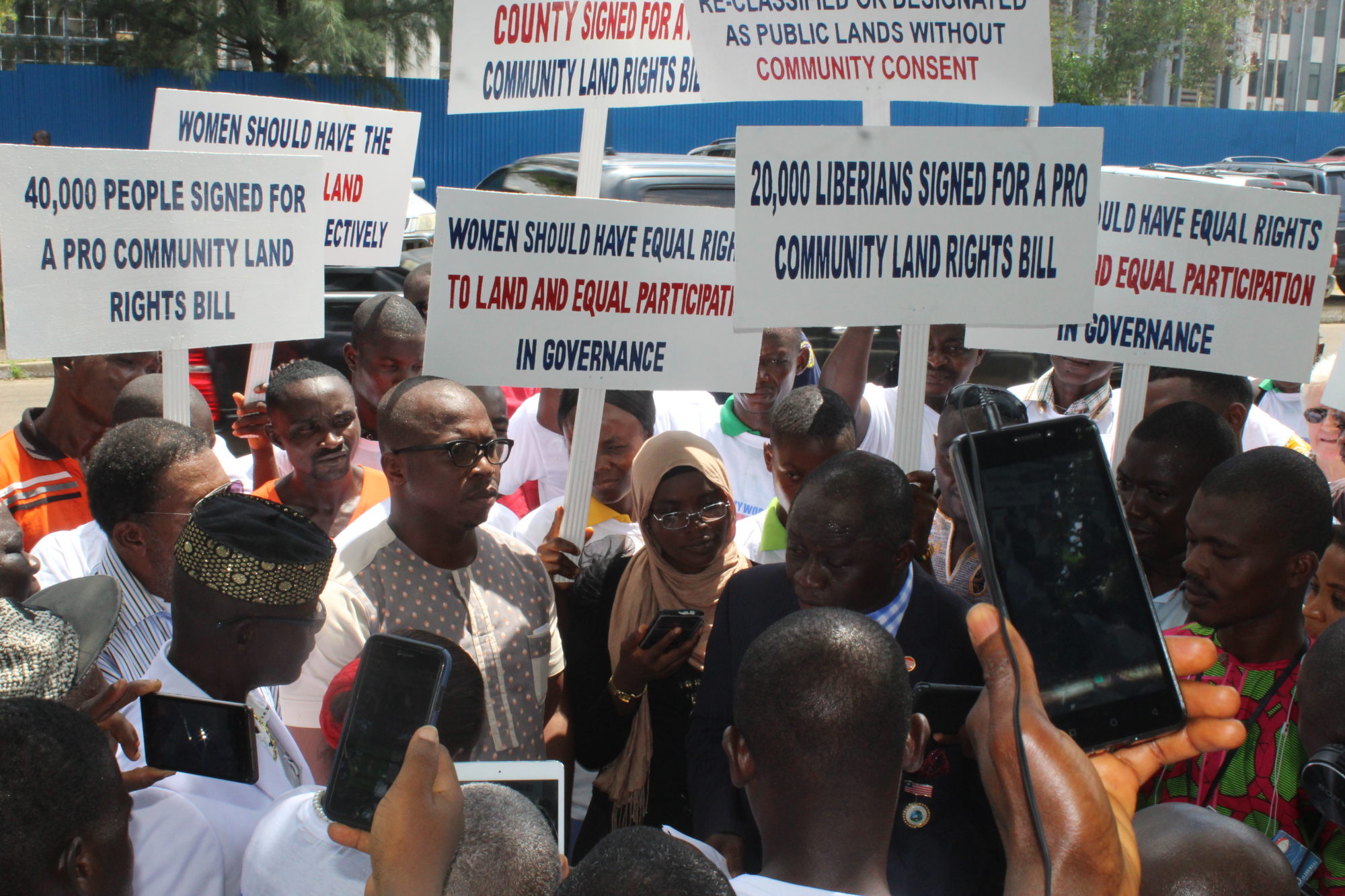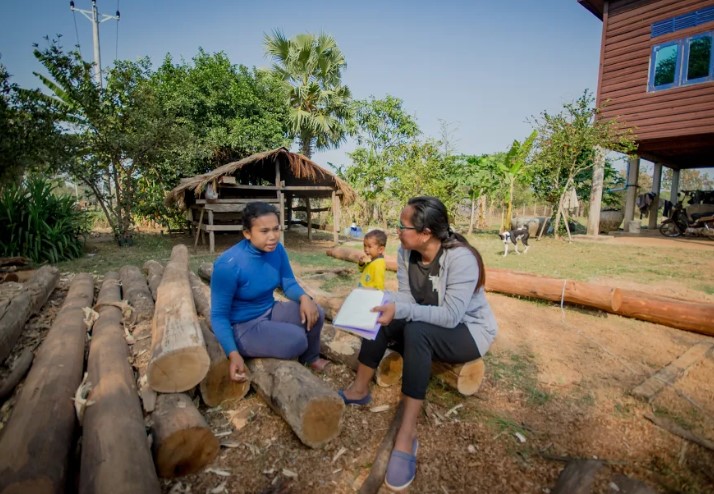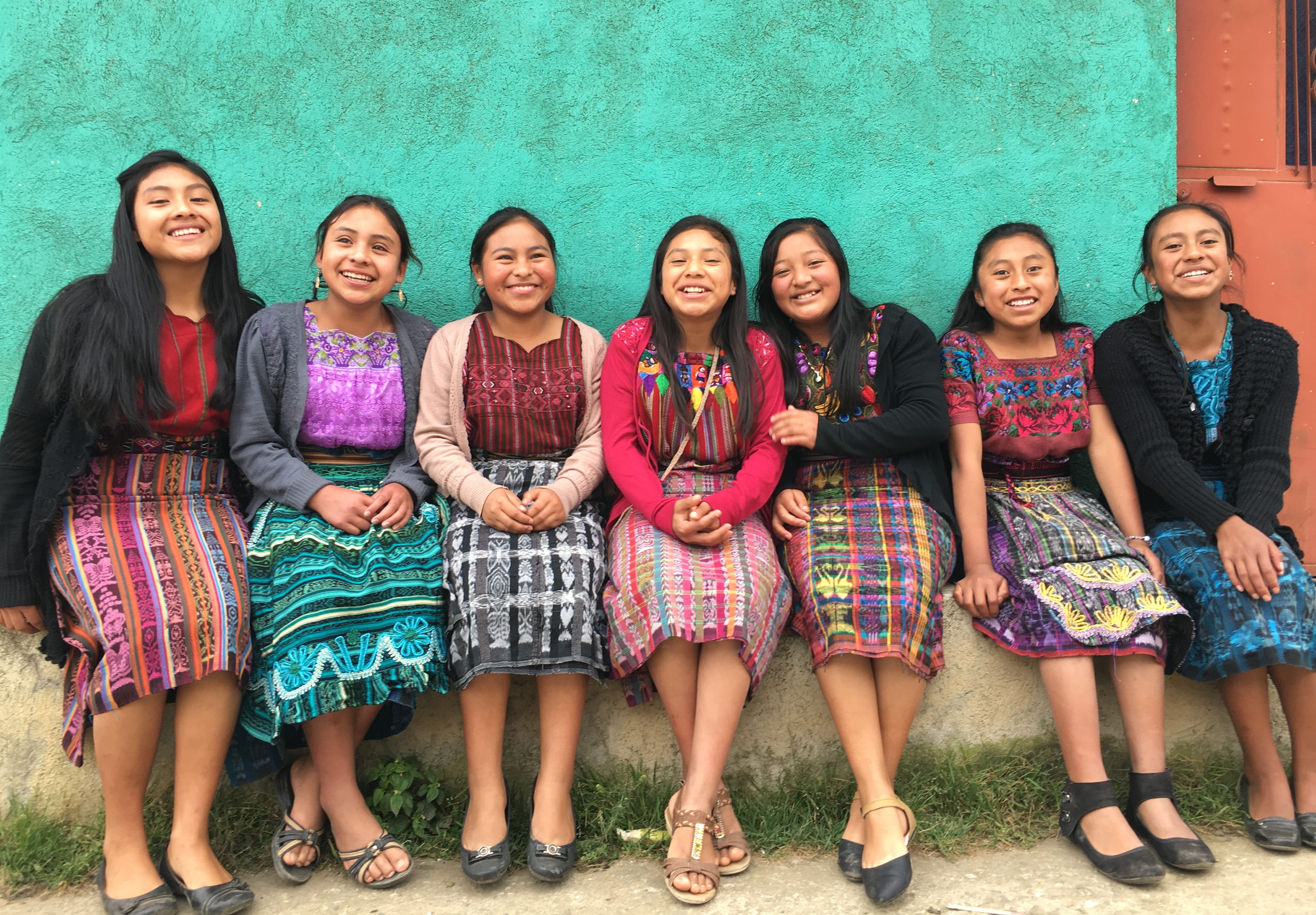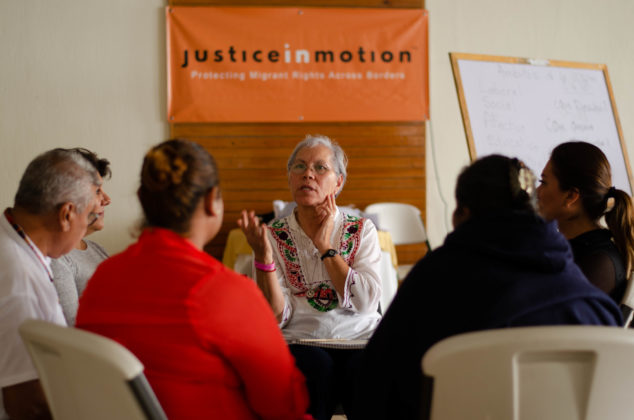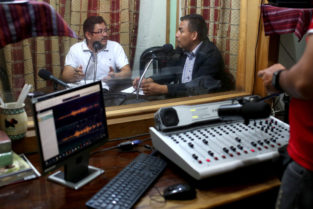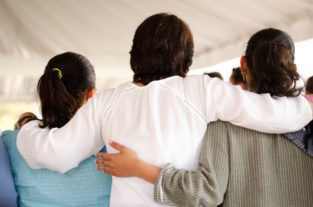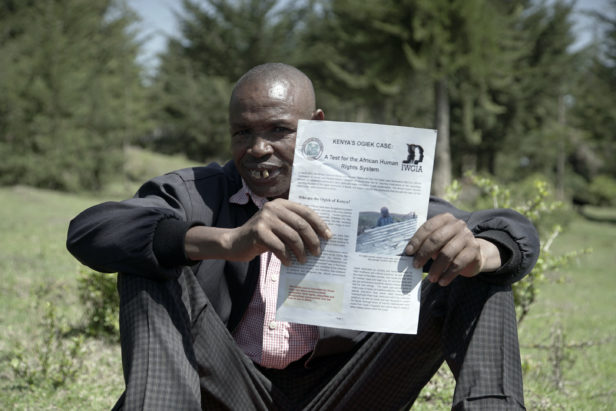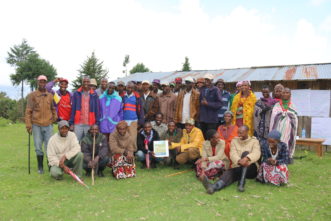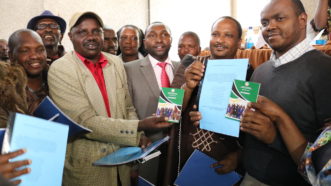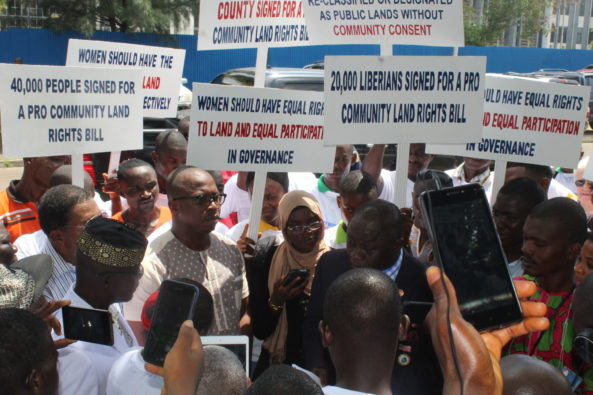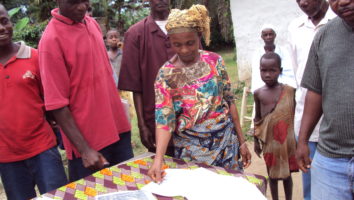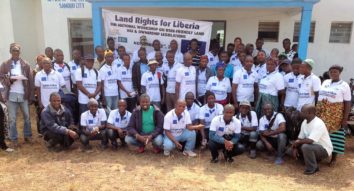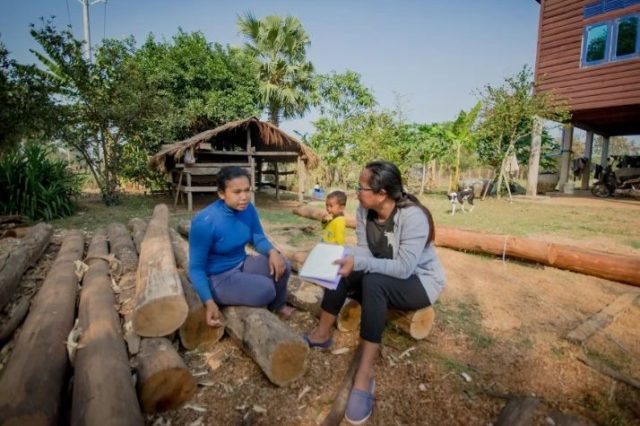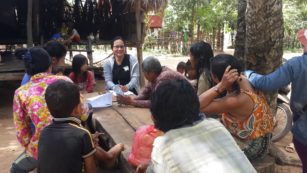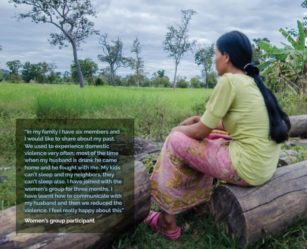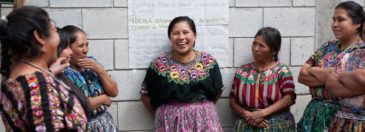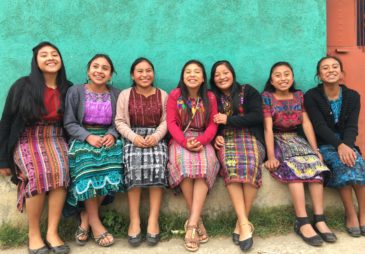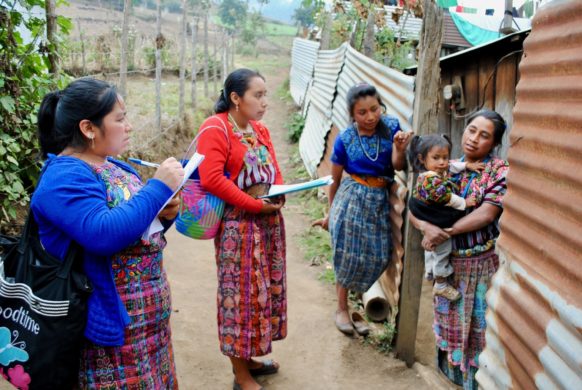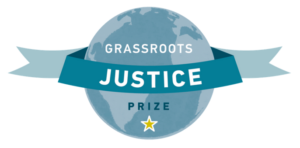
Who Will You Choose to Win the Grassroots Justice Prize?
The biennial Grassroots Justice Prize is the world’s only competition recognizing grassroots organizations and institutions that are working to put the power of law into people’s hands. And now you have the chance to choose one of the winners!
We received nearly 200 applications from around the world for the Grassroots Justice Prize. A panel of judges shortlisted five candidates for the public vote award. These pioneering organizations use legal empowerment to tackle some of the most pressing issues of our time—land rights, women’s rights, children’s rights, and migrant rights. They work every day to narrow the justice gap that has left billions of people behind. Which one will win is up to you.
Learn about the five candidates below, and vote for your favorite to win!
We’ll announce the winner of the public vote—along with the winners of the Grassroots Justice Prize’s three main awards—at a special event on July 15, 2019, during the High-Level Political Forum in New York. The public vote winner will also receive an award of $1000 USD and a seat at the 2019 Legal Empowerment Leadership Course.
***Voting is now closed***
The Five Candidates
Justice in Motion
Country or region
Central America/North America
A quick look
In this 90-second video, founder and executive director, Cathleen Caron, explains why and how Justice in Motion is empowering migrants to defend their rights.
The justice challenge
In the face of overwhelming legal and practical barriers, many migrants who have suffered exploitation or abuse at the hands of employers or government officials give up their rights after leaving the United States. Other migrants who flee abuse, violence, and persecution are unable to remain in safety due to lack of evidence to support their claims. These migrants need “portable justice”: the right and ability to access justice across borders.
Organization and/or project’s mission
Justice in Motion (JiM) is dedicated to securing portable justice through legal, educational, and policy initiatives in the U.S., Canada, Mexico, and Central America. Essential to this transnational model is their Defender Network, a unique partnership of on-the-ground human rights organizations in Mexico and Central America. Justice in Motion makes sure that wherever migrants go their rights will follow.
How legal empowerment is used to address the injustice
Legal empowerment has been core to Justice in Motion’s mission since it’s founding 14 years ago. Our Defender Network, an alliance of 43 human rights organizations across Mexico and Central America, is now the primary vehicle for this work.
We support Defenders—on-the-ground lawyers and community—by providing them with in-depth trainings and resources on U.S. and Canadian legal frameworks. Defenders then provide accurate information and refer legal cases for people in their communities, whether they are evaluating the legitimacy of a work visa offer, or seeking justice for a civil rights violation during detention or deportation. Defenders work closely with these migrants to equip them with the knowledge, resources, and connections to defend their rights, no matter the borders they have crossed.
Project’s impact
In 2018, the U.S. separated more than 2,000 migrant families at the U.S. border. They deported more than 400 parents without their children and had no plan to reunite them, declaring the parents “ineligible” for reunification because they were no longer in the U.S. JiM’s cross-border model and Defender Network uniquely positioned us to respond to the crisis. Through a massive mobilization of the network and other allies, all 400 parents were found. The parents could decide if they wanted their children to return to their country of origin or stay in the U.S.
JiM accompanied 28 families as they reunified with their children and helped more than 24 parents denied a fair asylum process to connect with U.S. lawyers, document their claims, and submit them to the government. Now, Defenders are working with U.S. lawyers on civil rights claims for the families, and we are exploring advocacy projects to make sure the policy is never repeated.
“[The service provided by Justice in Motion] is invaluable. Without in-country contacts who know the system and understand the conditions on the ground, we wouldn’t be able to obtain evidence that we need to seek the relief our clients are looking for. It’s key. It’s important that actors based in the U.S. have relationships with human rights actors in Central America because our clients are migrants and folks who are engaged in traveling across borders, and our representation has to reflect that experience and history.” – Laura Rivera, Southern Poverty Law Center, United States
WEBSITE: JUSTICEINMOTION.ORG
![]()
***Voting is now closed***
Ogiek Peoples’ Development Program
Country or region
Kenya
A quick look
In this 90-second video, program officer Lengoisa John Samorai provides a brief description of the Ogiek People’s Development Program’s work and recent achievements.
The justice challenge
The land rights of Kenya Ogiek community have been violated over time through dispossessions and ejection from the Mau Forest Complex for conservation purposes. The communities impacted have sought to resist through activism and litigation as this was going to deny them access to resources such as water, pastures for grazing their livestock, and the denial of their cultural practices. Despite a court ruling in their favor, members of the Ogiek community still face land grabs and related challenges which include threats of eviction, harassment, arrest, court charges, and destruction and loss of property and lives in the event of evictions.
Organization and/or project’s mission
To empower the Ogiek community in a Kenyan society that embraces equality and diversity, Ogiek Peoples’ Development Program (OPDP) strives to promote and advocate for the participation, self-determination, and improved human rights through enhanced inclusivity and of equal opportunity in the economic, social, cultural, and political spheres.
How legal empowerment is used to address the injustice
The Ogiek have been using legal means to challenge their denial of rights and access to resources. In 2009, following a mass eviction notice by Kenya Forest Service, the Ogiek community, with support from OPDP, lodged a case with the African Commission on Human and Peoples Rights (ACHPR) arguing that the intended eviction will have far-reaching consequences on the political, social, and economic survival of the Ogiek community. In 2012, the ACHPR referred the Ogiek’s case to the African Court on Human and Peoples Rights (ACtHPR), on the basis that it demonstrated serious and mass human rights violations.
On 26 May 2017, the ACtHPR finally delivered its landmark judgment in the case. The Court found the Kenyan Government had violated articles of the African Charter on Human and People’s Rights, with the violations amounting to a persistent denial of Ogiek land rights and their religious freedoms.
OPDP has been conducting community-level awareness, sensitization, and training to support the Ogiek community’s understanding of the human rights issues as well as mechanisms to protect their human rights including the constitution, laws and policies. This has helped the community to prevent as well as report violations meted on them. Further, OPDP’s capacity building has enhanced the community’s dialogue with the government in making appropriate demands in regards to resources and government opportunities.
About 50 community paralegals have been trained between 2012 and 2018. They play the role of human rights monitors and community mobilizers, giving legal education and documenting violations as well as reporting on community issues. Between 2015 and 2016, they supported two communities to map their land in parts of the Mau forest.
Project’s impact
To over 40,000 Ogiek in Kenya, the favorable 2017 case ruling provides a mechanism for the recognition and restoration of their ancestral lands of the Mau forest. However, the ruling is also significant to thousands other minority and indigenous peoples in Kenya and in Africa as it provides them with a unique platform to seek recognition of their rights as well as to advocate for changes in the law, policy, and practice governing the rights of indigenous peoples.
The government of Kenya formed a task force mandated to look into the issues of the Ogiek and other indigenous peoples. The task force will also research and conduct country sensitization about indigenous peoples.
WEBSITE: OGIEKPEOPLES.ORG

***Voting is now closed***
Sustainable Development Institute
Country or region
Liberia
A quick look
In this 90+-second video, Daniel Wehyee describes Sustainable Development Institute’s mission and how it has advanced land rights in Liberia.
The justice challenge
Liberia is a predominantly agrarian nation; most families make their livelihoods as rural small-scale farmers. However, most rural communities do not have a formal title to their customary land. At the same time, the Liberian government regards all land that is not deeded to be public land, thereby further weakening the customary land tenure rights of most of the citizens who live and work on these lands.
Meanwhile, the government’s economic growth agenda, outlined in a number of policy documents including the Poverty Reduction Strategy Paper and the President’s National Vision, is based on private-sector-driven investment in the natural resource sector, specifically forestry, agriculture, and mining. This system has enabled large-scale land acquisitions to occur, which has contributed to the dispossession of communities through the long-term transfer of user rights, and sometimes ownership rights, to foreign investors or local elites. This has, in turn, led to greater competition for fewer resources and a breakdown of the customary rules that have governed the equitable and sustainable use of common resources.
Organization and/or project’s mission
The Sustainable Development Institute (SDI) works to transform decision-making processes in relation to natural resources and to promote equity in the sharing of benefits derived from natural resource management in Liberia. Its activities cover a range of cross-cutting issues including governance and management; the environment; state and corporate social responsibility; economic and social justice for rural populations; and the democratic participation of ordinary people in government management of natural resources.
The organization’s vision is a Liberia in which natural resource management is guided by the principles of sustainability and good governance and benefits all Liberians.
How legal empowerment is used to address the injustice
To address Liberia’s weak land tenure system and resulting land-based conflicts, SDI supports communities, civil society organizations (CSOs), and national and local government to recognize and protect customary land rights. More specifically, SDI has been engaged with the following activities:
- Mobilization of local communities, national and community-based CSOs, and international efforts to advocate for the legal recognition of community lands and natural resources
- Working with relevant government agencies, particularly the country Land Commission and lawmakers, to develop pro-community policies and laws to protect customary land rights
- Piloting of customary land protection projects to develop simple-to-use tools to protect customary land rights
- Training and educating communities (community leaders, youth, and women) about their land rights and relevant safeguards
- Supporting over 60 communities to identify and map their customary and natural resources, including setting land use and management systems (bylaws and land management committees)
- Setting up an early warning and response system
Project’s impact
SDI received the Goldman Environmental Prize, the world’s largest prize honoring grassroots environmentalists for outstanding environmental achievements, in 2006.
SDI’s work has meaningfully contributed to the forest and land reform processes of the country. For example, SDI played a leading role in ensuring the passage of the Land Law which secures the rights of over 3 million Liberians to own and manage their land, particularly those in rural areas that have been historically marginalized and denied formal legal recognition of their customary land and resources.
SDI has supported over 60 communities across 500 towns and villages to identify and map their customary and natural resources, including setting land use and management systems (bylaws and land management committees). These communities have met the necessary requirements to legal recognition.
SDI has also empowered communities to manage and protect their customary land against external threats. For example, through SDI’s Early Warning and Response System (a system that provides real-time on phone support to communities), some communities are now taking actions to ensure the protection of their customary land.
In addition, through SDI’s work, many fraudulent land transactions have been exposed, including the infamous Private Use Permits (PuP) scandal, in which commercial forestry stakeholders, the national elite, and high-level government officials colluded on a massive scale with local leaders to defraud the country of over 40 percent of its rich forest land to commercial logging interest.
Website: SDILIBERIA.ORG
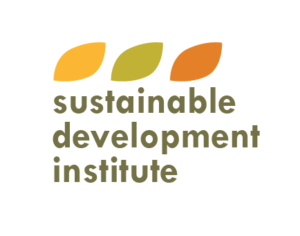
***Voting is now closed***
This Life Cambodia
Country or region
Cambodia
A quick look
In this 2-minute video, This Life Cambodia explains the context and need for their domestic violence work, and why they deserve your support in the Grassroots Justice Prize public vote.
The justice challenge
While we provide a range of legal empowerment services and advice, our main focus for this award is our legal empowerment of women and children facing domestic violence.
Domestic violence is a profound problem in Cambodia. At least 1 in 5 women experience violence from a spouse or partner, while 50% of children report violence from adults in their lives. The problem is compounded by social attitudes which make people believe this to be normal – indeed, until recently, the “Chbab Srey” (or “Women’s Law”) was taught in Cambodian schools, and demanded subservience and obedience from women towards their husbands. While this practice has now ended, the attitudes linger. This is one reason why only 1 in 4 women who experience violence seek any help: 40% of those who do not say it is because they consider the violence “normal”.
Organization and/or project’s mission
This Life Cambodia’s vision is for vulnerable children, families, and communities in Cambodia to be supported to access and create opportunities in this life. Our mission is to listen to, engage with and advocate alongside children, families, and communities as they define and act on their own solutions to complex social challenges.
How legal empowerment is used to address the injustice
Our legal empowerment work is split into two areas: public campaigning at a national level and direct, grassroots action at a local level.
Nationally, we launched a major campaign raising awareness of the law in November 2018. We created a set of online legal resources including a readable copy of the law, the first audio version of the law for people who could not read, and a list of places to go to seek intervention, help, and support. We believe this to be the best legal resource on domestic violence in Cambodia. We promoted these resources through a creative short film and a 16-day online campaign of endorsements and messages against domestic violence from highly influential and famous Cambodians. This campaign included creative elements such as a digital protective helmet full of legal advice for people to download and save to their smartphones. The campaign was backed by widespread media coverage in newspapers and events in the community, helping reach women who are not online.
At the grassroots level, we have worked informally over many years to advise women on their legal rights as part of our community-based work to strengthen families facing difficulties including poverty, criminal activity, and violence. We began properly researching the issue of domestic violence and how to tackle it in 2014 and published a report exploring the problem in depth. Following the research, we piloted a program which included legal empowerment as a key component, and the results were so successful that in 2018 we rolled out a full program called ‘This Life Without Violence.’
Our ‘This Life Without Violence’ program works on several levels to provide legal advice and support to women, including monthly meetings attended by hundreds where advice and information are offered, training on violence and the law for local authorities including police, and work with secondary school students to teach them about the law and gender equality at an early age.
Project’s impact
For our national campaign, the scale of the impact was vast. Our video informing people of the law was seen by more than 1 million Cambodians, and the campaign materials were shared on Facebook more than 9,000 times. In all, the Facebook campaign alone reached over 1,800,000 people—which is more than 1 in 10 of the population. Most importantly, more than 13,000 people visited our web page of legal advice and resources. All of this will have led to greatly increased awareness of the law, which we will continue to measure this year through formal surveys. In addition, we received messages publicly and privately from people who said they had been inspired by the information to take action.
At the grassroots level, more than 900 women have now attended our monthly meetings and received legal advice, though we believe our work to educate 100 local authority members will mean that many thousands of women stand to benefit from authorities who understand their legal obligations to protect them. We know of many women who were facing violence and did not seek any kind of intervention who, upon learning their rights, went on to do so, and are now living free of violence as a result. Our program has just been expanded thanks to the success of what has been achieved so far and we now have the funding to reach 7,389 direct beneficiaries over the next 3 years.
Sabay News, perhaps Cambodia’s most popular news outlet, wrote: “This campaign can raise awareness of laws and save Cambodians from the suffering caused by violence.”
“We used to experience domestic violence very often; most of the time when my husband is drunk he came home and he fought with me. My kids can’t sleep and my neighbors, they can’t sleep also. I have joined with the women’s group for three months. I have learnt how to communicate with my husband and then we reduced the violence. I feel really happy about this.” – Women’s group participant
We have [received] a letter from the District Governor of Soutr Nikom requesting the expansion of ‘This Life Without Violence’ to encompass the whole district, an additional eight communes.
The Department of Women’s Affairs is very supportive of the ‘This Life Without Violence’ program in its current operations and has stated in discussions with TLC that they would like to see an increase in scale to support a larger number of local communities to deal with this pervasive issue.
WEBSITE: THISLIFECAMBODIA.ORG
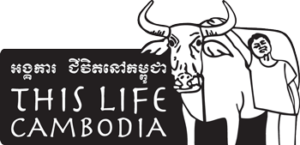
***Voting is now closed***
Women’s Justice Initiative
Country or region
Guatemala
A quick look
In this 2-minute video, Women’s Justice Initiative outlines its mission and methods for reducing violence against women and girls, and why they deserve your support in the Grassroots Justice Prize public vote.
.
The justice challenge
Guatemala faces some of the highest levels of violence against women and girls (VAWG) in the world: 27.9% of women suffer from intimate partner violence in their lifetime and the country has the third highest femicide rate globally.
Rural, indigenous women are disproportionately impacted due in part to their social isolation and limited access to resources. Social services and government institutions are concentrated in Guatemala’s cities; they rarely reach indigenous women living in rural areas.
Those women who leave their communities to seek assistance often face discrimination due to their ethnicity in addition to the challenge of navigating a system that does not offer bilingual services. Administrative and geographic barriers are further compounded by social norms that view violence against women and girls as acceptable.
Organization and/or project’s mission
Women’s Justice Initiative (WJI) works in rural Maya communities in Guatemala where women face extreme poverty and have little or no access to social services, making them especially vulnerable to violence, inequality, and discrimination.
Their mission is to improve the lives of indigenous Guatemalan women and girls through education, access to legal services, and gender-based violence prevention.
WJI envisions a Guatemala in which women:
- Are active leaders in their communities;
- Have access to legal services;
- Have knowledge of their legal rights and can safely assert these rights; and
- Are free from gender-based violence.
How legal empowerment is used to address the injustice
WJI addresses the challenges indigenous Maya-Kaqchikel women face by providing free, culturally-grounded, legal support; bilingual legal education; and leadership training in 32 communities in rural Guatemala through its 4 programs: Women’s Rights Education, Legal Services, Community Advocates, and Adolescent Girls.
The Women’s Rights Education Program is a six-month legal empowerment course that educates women about their rights, including the right to live free from violence, sexual and reproductive rights, and property and inheritance rights. The program also fosters the women’s leadership, decision-making, and communication skills so they can better assert their rights.
The Community Advocates Program is a grassroots legal advocacy program that provides intensive human rights and leadership training to graduates of the Women’s Rights Education Program, enabling them to become local leaders and grassroots legal advocates for women and girls in their communities. These Community Advocates support WJI in facilitating legal literacy workshops and providing accompaniment to women seeking legal services.
The Legal Services Program provides free legal aid directly to women in need by bringing lawyers and paralegals to their communities and providing bilingual Maya Kaqchikel-Spanish resources.
The Adolescent Girls Program supports girls ages 10 to 17 in asserting their rights, delaying marriage, and achieving their personal goals.
Project’s impact
Women’s Justice Initiative has reached over 13,000 individuals since 2011. Annually, WJI directly benefits 2,500 indigenous women and girls between the ages of 10 and 65, who live in 32 rural communities.
- 1,349 women and their families received legal aid through WJI
- Of the 659 legal cases that required legal proceedings, 332 cases were resolved or closed with WJI’s support.
- Other cases remain in litigation as it takes multiple years to resolve cases given the significant delays and inefficiencies in Guatemala’s court system.
- 91 indigenous women received land titles in their name through WJI’s legal services.
- More than 2,600 women and girls graduated from legal empowerment programs.
- Over 130 police, judicial, and health officials have received capacity-building workshops on VAWG.
- 45 local women were trained as Community Advocates, or grassroots legal advocates, who provide support for women and girls in their communities.
- WJI and its Community Advocates have worked with local leaders to develop Community Action Plans, a participatory methodology that establishes community-based mechanisms and responses to VAWG and child marriage.
- WJI has worked with 477 community leaders to enact 26 Community Action Plans, through which leaders implemented VAWG prevention and awareness activities in their community, developed a community-based referral system, and created protocols for accompaniment and response.
- The Action Plans directly benefited 3,925 community members and indirectly benefited a population of over 20,000.
Website: WOMENS-JUSTICE.ORG
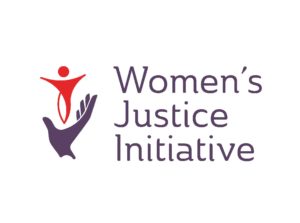
***Voting is now closed***


